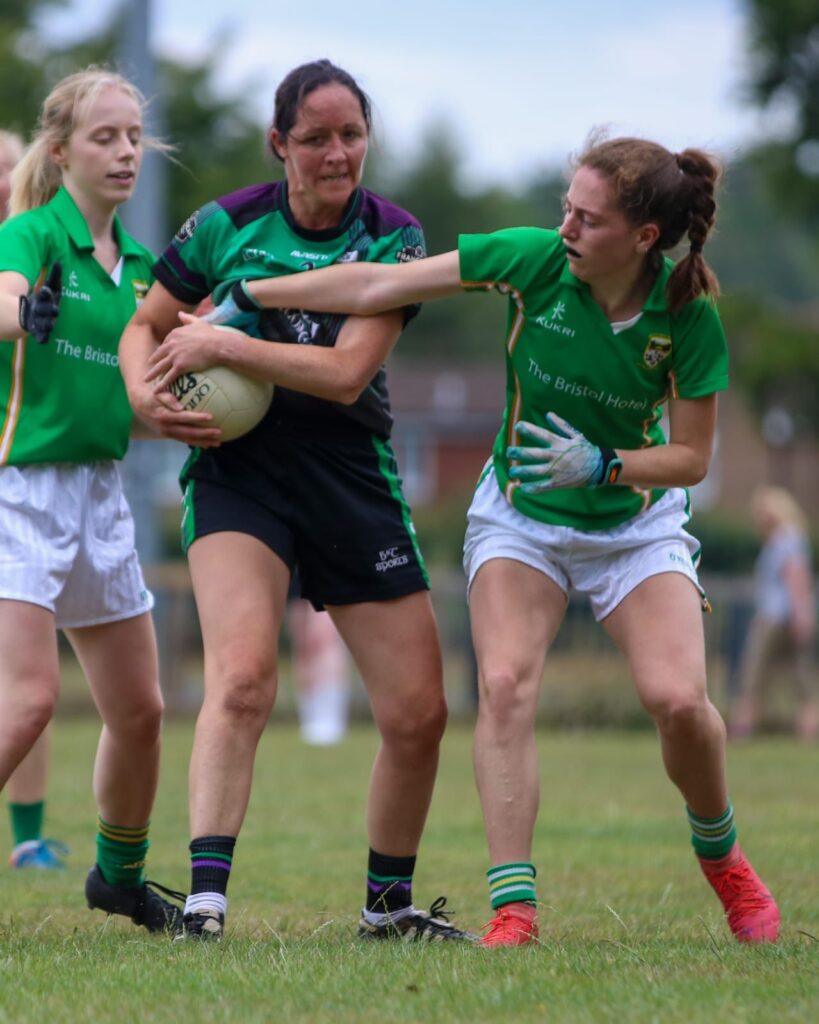Gaelic sport is synonymous with Ireland and Irish culture, so it should come as no surprise that within Irish communities here in the UK, there is a strong GAA presence.
The main two Gaelic sports are football (not soccer) and hurling. For generations, they have been ingrained in Irish culture and it should come as no surprise that as nationals began to migrate that Gaelic sport has, too, found its way across the Irish sea.
The GAA’s All-Ireland finals are akin to FA Cup final day here in the UK, and arguably held in higher regard in the Emerald Isle. Players dream of representing their counties at Croke Park on the biggest day in the Irish sporting calendar, and clubs from the UK also compete in the All-Ireland Championship.
In the UK, Gaelic sport is not quite at the same level as our Irish neighbours. Here, it is a minority sport in the grand scheme of things – but that certainly doesn’t diminish the passion that those involved in the sport have for the sport.
“It Was a Big Part About Growing Up in Ireland”
Growing up in a small island off of West Cork, Dr Verona Ní Drisceoil didn’t actually play her first game of Gaelic football until she was 21 years old, but that doesn’t mean that the sport isn’t in her blood. Since moving to England, Verona has played for London-based Parnells GAA and London County and is currently playing for Brighton and Crawley Gaels.
Verona told Fen Regis Trophies: “As you probably know it’s very much an Irish, community sport. It was a big part of growing up in Ireland.
“In more recent years, there’s been more diversity and you have seen growth in other sports, like rugby in particular.”
She added: “I came to Gaelic football later. My cousins lived on the mainland and I started quite late. I started playing when I was 21, but I was always sporty. That’s how I got into it.
“I guess from the point of view of being in the UK, it’s seen as being an Irish connection. I also travelled in Australia and played Gaelic football over there.”
One of the challenges that Verona has encountered is the lack of facilities for Gaelic sports in England. Gaelic football, for instance, is played on a pitch that measures almost twice the size of an association football pitch. That means that finding somewhere to play can prove difficult.
“In Ireland, the standard size of a GAA pitch is much bigger than the size of a soccer/football pitch in the UK.
“We have been trying to get a full-sized Gaelic football pitch here in Brighton. It causes difficulty for us as we don’t have our own pitches.
“I approached the council in Brighton and asked if we could have a full-sized pitch and the conversations were positive.”
Having represented and won silverware for her county in Ireland, Verona admits that she enjoys the more community-centric ethos of Gaelic sport in England than back home.
“Gaelic football can be quite serious,” she admits. “There’s the real desire to win.
“Outside of Ireland, whilst the love of the game is really strong, the community is stronger.
“What I find nice about playing Gaelic football outside of Ireland is that it has more progressive elements.
“What I mean by that is clubs across the UK are very open to people joining, and there are people that have an Irish connection that have never played the game before.”

Irish Connections
Like many who have been born and raised in England, Rory Norris does have Irish heritage in his family tree. A coach at St Albans GAA, Rory grew up in London – a hotspot for Irish immigration – and got into the sport at an early age, though dropped away during his teenage years.
“There wasn’t much progression in Gaelic sport at that time,” he said. “You get to a certain age and people are coming over from Ireland to work, who are better, and you fall out of love with the game.”
Despite lapsing and falling away from the game, Rory would eventually rekindle his passion for Gaelic football through his son. In a story shared by many a grassroots coach, he was “dragged” into coaching and has never looked back!
“I had a huge gap until around 10 years ago, when I took my son to Gaelic,” said Rory.
“He joined a nursery programme and I ended up in that first session…being dragged into it…and I’ve been involved ever since! You think you have escaped, but you get dragged back in again!”
England’s only All-Ireland success came in hurling through London in 1901, but despite that, it is Gaelic football that is far more popular this side of the Irish sea. St Albans GAA is primarily focused on its football offering, the same as all clubs playing under the Hertfordshire GAA banner, though that may be changing.
“In England, it’s more Gaelic football. With Gaelic football, it’s also easier [due to the facilities available].
“My club is part of Hertfordshire GAA and all our clubs are football. There is one new hurling club that was launched last year, which is why we are pushing to start offering hurling.”
He added: “We are a Gaelic football club, so that’s our focus. We have had a few hurling taster sessions.
“It’s always been very popular and there are plans to start bringing hurling to the younger age groups.”
Though Gaelic sport runs thick in Irish culture, all clubs are welcoming to those who have never played or watched any form of GAA…nor do you need any form of Irish heritage, so don’t worry about trawling through the family tree!
